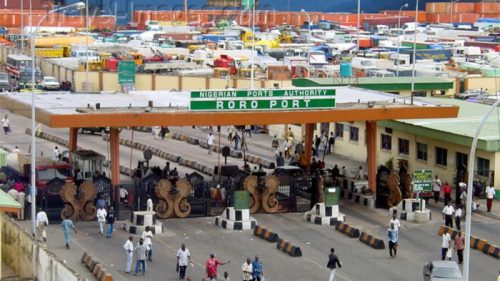
Duties payable on imported goods at Nigerian ports have gone up following the hike in the exchange rate for cargo clearance by the Federal Government through the Central Bank of Nigeria.
The PUNCH reports that the exchange rate for payment of duty paid on imported vehicles on the portal of the Nigeria Customs Service was raised from N783/$ to N952/$ on Thursday.
This became the fourth time the exchange rate for cargo clearance was raised this year.
The CBN had in June, adjusted the exchange rate from N422.30/$1 to N589/$1. In July, it was adjusted to N770.88/$1, while in November, it was adjusted to N783.174/$1.
Reacting to this, importers and clearing agents said the increase had led to increase in import duty and tariffs.
The Public Relations Officer of the Association of Registered Freight Forwarders of Nigeria, Taiwo Fatomilola, lamented that the duty on 40ft container increased from N7m on Wednesday to N9m on Thursday.
“There is also a N350,000 increase on the duty on each car,” Fatomilola said.
A chieftain of the Shippers Association of Lagos State, Jonathan Nicol, said that the development would affect businesses for shippers.
He also said that the move would definitely lead to an increase in the cost of doing business and induce inflation.
Nicol said, “More cargo will be diverted to other climes and the nation’s ports will not be as busy as it should have been.
“I also know that the government is aware of the inflationary pressure on the citizens. Increase of cost of clearing at this time is ill-timed during Christmas festive period. The government targeted the Christmas rush period to make more money through customs duty, while goods cleared will be difficult to sell.”
A chieftain of the Association of Nigerian Licensed Customs Agents, Onome Monije, said,
“What it implies in simple terms is that, if clearing agents have a Debit Note that has not been paid on the system, it will affect it,”
Also speaking, a licensed agent and the Chief Executive Officer, of LWL Concept, Lawal Wasiu, said “From all indications they are just trying to discourage importation. And this will create a lot of issues and affect access to Nigerian market especially pharmaceutical products.’”





